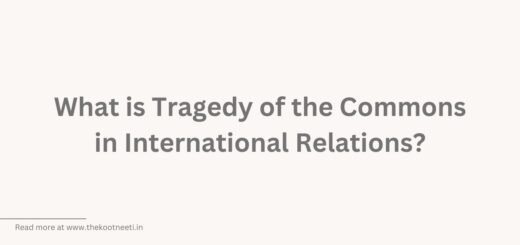What is Democratic Peace Theory in International Relations?

The democratic peace theory is a concept in international relations that suggests that democracies are less likely to go to war with one another than with non-democracies. The idea is that democracies, which are typically characterized by regular and fair elections, the rule of law, and respect for individual rights and freedoms, are more likely to prioritize peaceful resolution of conflicts and less likely to engage in aggressive or militaristic behavior.
The democratic peace theory is supported by empirical evidence that shows that democracies have a much lower rate of conflict with one another compared to non-democracies. However, it is important to note that this does not mean that democracies never go to war or that they are immune to conflict. There have been instances of democracies engaging in military conflict with one another, and democracies can also be involved in conflicts with non-democracies.
It is also important to recognize that the democratic peace theory is not a complete explanation for all patterns of international conflict. Other factors, such as economic interests, cultural differences, and security concerns, can also play a role in shaping the international system and the likelihood of conflict.
Pros of the democratic peace theory:
- Provides evidence for the idea that democracies are less likely to go to war with one another: The democratic peace theory is supported by empirical evidence that shows that democracies have a much lower rate of conflict with one another compared to non-democracies. This suggests that democracies may be more inclined to seek peaceful resolution of conflicts and less likely to resort to military force.
- Promotes the idea of peaceful conflict resolution: The democratic peace theory emphasizes the importance of peaceful resolution of conflicts and suggests that democracies are more likely to prioritize this approach.
- Encourages the spread of democracy: The idea that democracies are less likely to go to war with one another may encourage the spread of democracy around the world, as it suggests that this political system is more conducive to peace.
Cons of the democratic peace theory:
- Limited in its explanatory power: The democratic peace theory does not provide a complete explanation for all patterns of international conflict. Other factors, such as economic interests, cultural differences, and security concerns, can also play a role in shaping the international system and the likelihood of conflict.
- Does not account for instances of democratic conflict: While the democratic peace theory suggests that democracies are less likely to go to war with one another, there have been instances of democracies engaging in military conflict with one another.
- Does not necessarily apply to conflicts with non-democracies: The democratic peace theory only applies to conflicts between democracies. It does not necessarily apply to conflicts between democracies and non-democracies, which may be influenced by different factors.


















